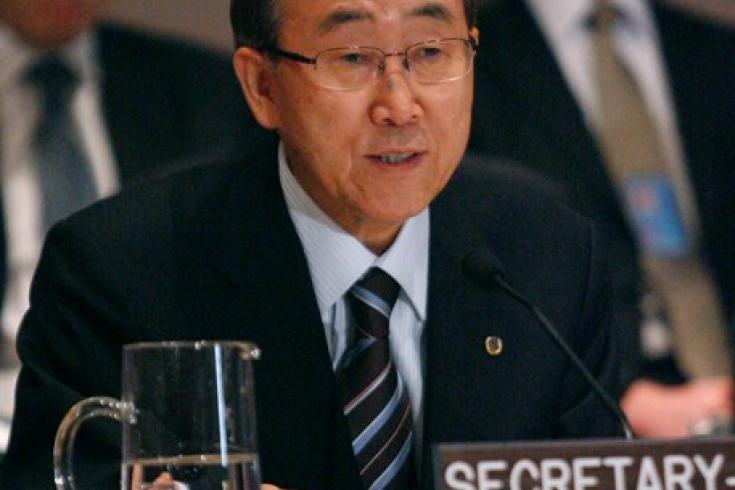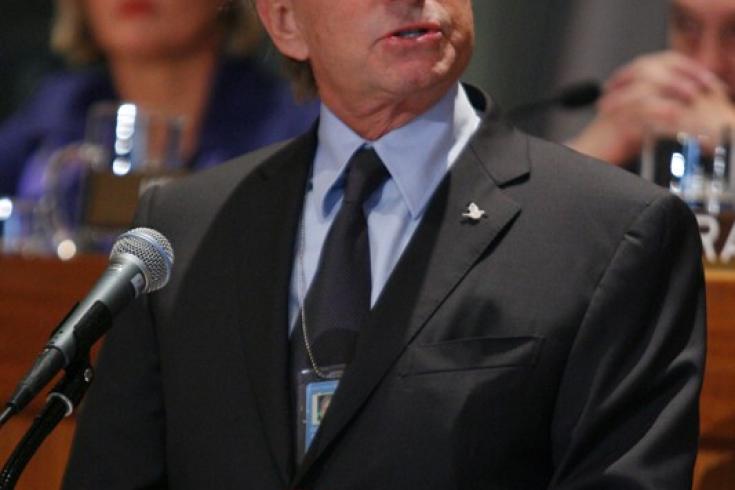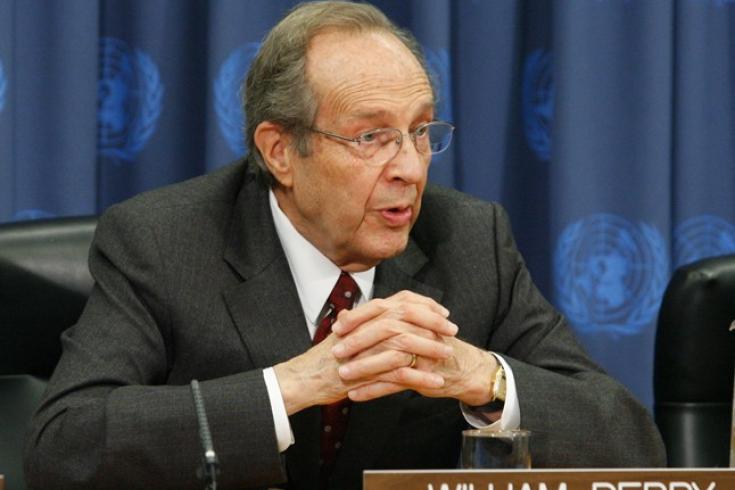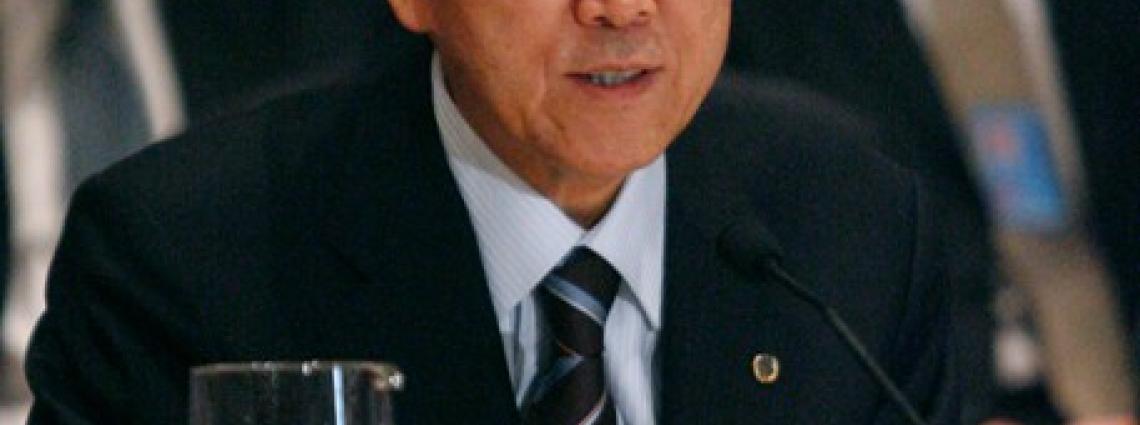The 2008 CTBT Ministerial Meeting - A message of hope and peace
Demonstration of the strong international will against nuclear testing and of support for the CTBT

U.N. Secretary-General Ban Ki-moon
“Testing nuclear devices is a clear threat. Twenty years after the end of the Cold War the language of threat is no longer the language we want to speak.”
Prominent Americans express strong support for Treaty

U.N. Messenger of Peace and actor Michael Douglas
“I sincerely hope that the United States will decide to ratify the Treaty in the foreseeable future.”
"Just as I will work with the US Senate to secure ratification of the CTBT at the earliest practical date, I will prioritise diplomatic efforts with India and Pakistan to encourage them to move beyond their moratorium on nuclear testing toward the ratification of the treaty."
India's role in the Treaty's entry into force was also highlighted. As Germany’s Foreign Minister Frank-Walter Steinmeier noted “India, whose accession to the CTBT would bring the Treaty a further, very important step closer to entry into force, expressly confirmed its test moratorium just a few days ago.”

Former U.S. Defense Secretary William Perry
Only nine countries must ratify for entry into force
More countries than ever have endorsed the appeal
“We call upon all States that have not yet done so to sign and ratify the Treaty without delay, in particular those whose ratification is needed for its entry into force.”
CTBT vital to address the nuclear threat
“A nuclear bomb detonated in one of our cities would dwarf 9 / 11.”
A concrete and practical measure
Convinced that the CTBT can be verified effectively
“The value of the global component of the verification system was shown when it provided critical information about the DPRK nuclear test in October 2006”
An international one billion dollar undertaking
“The over 2000 nuclear tests conducted in the four decades before the CTBT was opened for signature were a clear a threat not only to peace and security, but also to human health and the environment.”
Other benefits of CTBT data

Mr. Jonathan Granoff, President of the Global Security Institute (right), speaks to UN Messenger of Peace Mr. Michael Douglas (left) as the Executive Secretary of the CTBTO Preparatory Commission, Mr. Tibor Toth, looks on.
Special thanks to the Global Security Institute
17 Oct 2008
